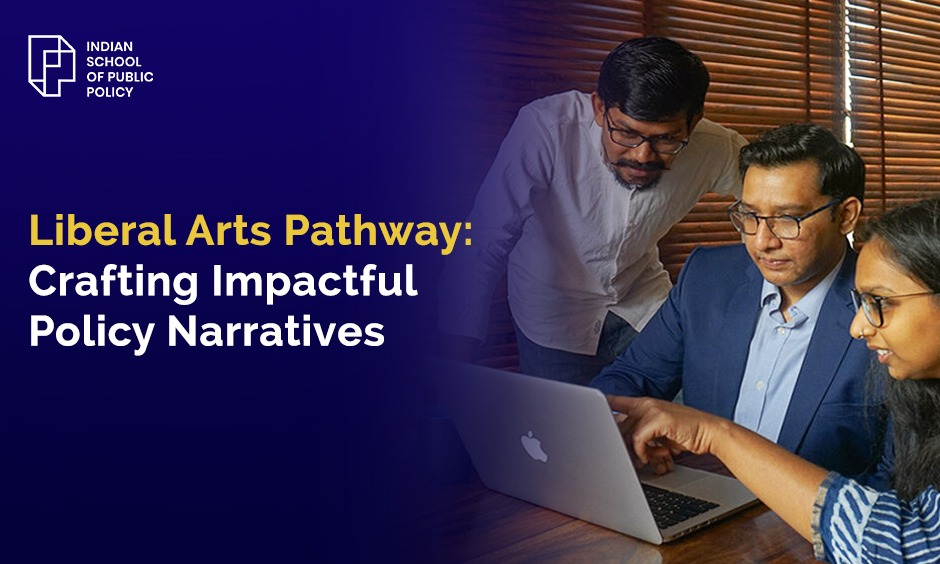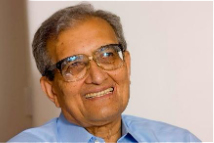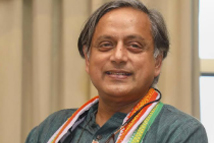Table of Contents
ISPP’s programme Liberal Arts Pathway: Crafting Impactful Policy Narratives

As part of any liberal arts curriculum, students are encouraged to develop many soft skills like clear communication with clarity, thinking critically, connecting diverse ideas and more, all of which are universally understood to be skills that are critical for any effective policy-making.
A liberal arts student can have a varied background, be it literature, sociology, history, political science or economics. No matter which path, liberal arts education gives the ability to approach complex social or political challenges with multiple perspectives, discover nuanced layers, side-step biases and question incorrect assumptions.
The ISPP Approach: Blending Liberal Arts with Policy Studies
At the Indian School of Public Policy (ISPP), our focus is on taking these skills and learned behaviours and channel them to actions with impact. The programme is designed to deepen one’s understanding of policy frameworks and governance, at the same time, it offers the students practical tools in stakeholder engagement, data analytics and policy communication.
The curriculum was built with emphasis on combining the rigours of policy studies with the creativity of liberal arts. At ISPP, we aim to empower graduates to build narratives, craft interventions, and influence decisions that lead to lasting and meaningful transformation.
Bridging the Gap: From Liberal Arts to Policy
The world of policy and policy-making demands expertise in understanding regulatory mandates, data analytics, and the ability to find practical solutions to real world problems, while handling resource constraints and more. A liberal arts education can help with some of these but programmes like ISPP are critical to:
- Translate conceptual knowledge into actionable policy recommendations.
- Train students in data-driven storytelling.
- Offer live case studies from pressing policy challenges.
- Encourage cross-disciplinary thinking, where literature meets law, or sociology meets technology.
Why Policy Needs Storytellers
Data can inform, but stories inspire actions. Any policy proposal or document must be technically sound, and has to inspire people, shape public discourse and encourage consensus. This is where liberal arts students can showcase their strengths and shine.
- Frame an issue in a relatable way — translating multifaceted ideas into language and descriptions that resound with ordinary experiences.
- Identify historical and cultural contexts — guaranteeing that a policy idea is grounded in an understanding of social values, traditions, and preceding reform efforts.
- Anticipate societal responses to policy changes — forecasting not only fiscal or legal influences, but also community and civic sentiment and possible unintentional costs.
Examples of Policy Storytelling in Action

Take for example Mr. Amartya Sen, Nobel Prize-winning Economist and Philosopher, who has a solid background in economics and is also influenced by philosophy and history. He is known to use his “capabilities approach” where he is able to reframe debates on welfare and poverty eradication and change how global policy is being discussed.

Another example is that of Ms. Alexandria Ocasio-Cortez, American Congresswoman, who has education in economics and international relations. She uses gripping narratives on social media to make multifaceted policy ideas accessible to and understood by millions.

Leaders like Shashi Tharoor, Member of Parliament (MP) for Thiruvananthapuram, Kerala, with a background in history and international affairs, have influenced national debates by blending data with powerful storytelling.
At ISPP, this storytelling talent is refined and harmonised with experiential rigour. Participants of the programme study to drive their models and frameworks with evidence, communicate them to the media, policymakers and the public, and structure their arguments for policy effectiveness. This results in policy ideas that truly make an impact in the real world.
Inside the ISPP Liberal Arts Pathway
At ISPP, students go beyond conventional policy studies, exploring a rich mix of history, philosophy, literature, and critical thinking. This interdisciplinary method helps future policymakers who can think profoundly, argue convincingly, and take action with compassion.
- Policy Communication Workshops – Study to write policy briefs, op-eds, and strategy notes that varied audiences understand and relate to.
- Data & Evidence Modules – Create strong links between qualitative awareness and quantitative accuracy.
- Simulated Policy Labs – Work on practical problems in governance, education reform, urban planning, climate action and more.
- Mentorship from Policy Practitioners – Get guidance from ex civil servants, political experts, and think-tank consultants, among others.
Career Trajectories for ISPP Graduates
Alumni of the ISPP programme have gone ahead and built diverse and impactful careers that shape public discourse and policy. Many have had the privilege of working in government ministries, contributed to think tanks as policy researchers, and led advocacy campaigns for prominent NGOs and other organisations.
Other ISPP graduates have also taken on roles in policy consulting and communication strategy, using their know-how to tackle complex issues in ways that drive true on-ground change. Several have also gone on to pursue higher studies in fields such as public administration, law, and international affairs, further strengthening their ability to influence and implement impactful policy narratives.
Your Liberal Arts Foundation, Your Policy Future
A liberal arts education prepares you with the inquisitiveness to ask deeper questions. ISPP prepares you with the tools to find the right answer for them, and turn them into actionable change.
If you’re a liberal arts student who wants to shape the future of governance, economics, and social impact, the Liberal Arts Pathway at ISPP is where your journey from ideas to influence begins.



